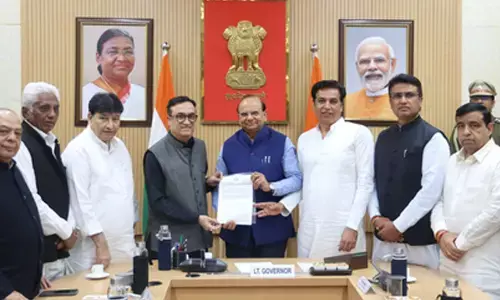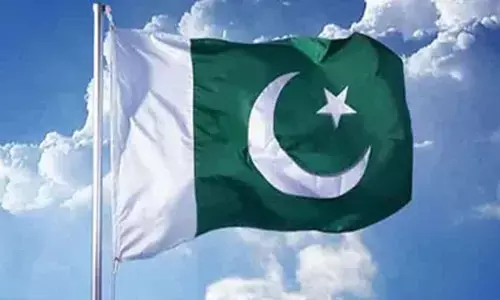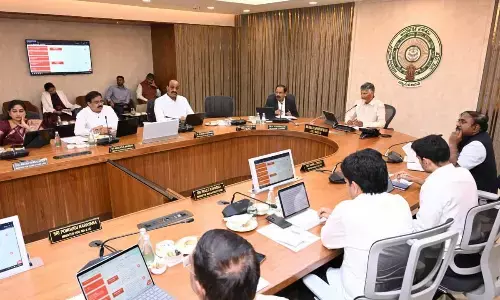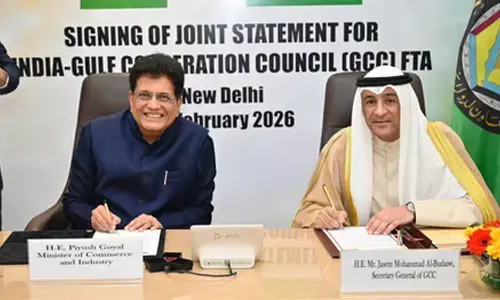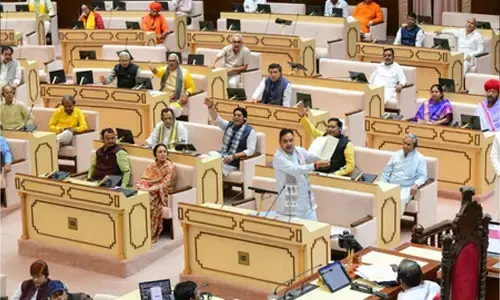Lessons to Sonia Congress

Lessons to Sonia Congress, As a witness to the anti-Sikh riots in New Delhi, it is difficult for me not to see an irony in the Modi government’s decision to give Rs 5 lakh each to the next of kin of 3,325 victims of the riots.
As a witness to the anti-Sikh riots in New Delhi, it is difficult for me not to see an irony in the Modi government’s decision to give Rs 5 lakh each to the next of kin of 3,325 victims of the riots. Any decision by an elected government comes loaded with a political message and this announcement is, therefore, no exception, more so as it comes ahead of three by-elections to the Delhi Assembly on November 25. More than 2,700 Sikhs, women and children including, were killed in Delhi alone in what was independent India’s worst communal riots bordering on ethnic cleansing for four days.
.jpg)
Neither the Congress government of the day nor its successors in which the Congress was the pivot, had tried to bring the culprits to book. In fact, there was a calibrated effort to rehabilitate the likes of Sajjan Singh, and Jagdish Tytlor, who still stand accused of instigating mob frenzy. The effort did not succeed, though.
During her life-time, Indira Gandhi sought to uphold the principles of secularism, religious tolerance and communal amity. It was these values and her ability to time her act that had helped her bounce back on the centre-stage after the electorate made her pay for the emergency sin. But her death unleashed the forces that were anti-thesis of what all she had come to be identified with in her life time. Rajiv Gandhi did not help her cause by helping the 84 guilty walk free, and by offering a justification of sort for the carnage with his analogy “when a big tree falls, earth shakes”.
It is not my case that the Modi government has rendered justice to the anti-Sikh riot victims by announcing a new financial compensation, which inter alia amounted to increasing the 2006 package of UPA by Rs 1.5 lakh per family. No amount of money can erase the 1984 scars etched on the collective psyche of the nation. It will also not bring solace to the families who have lost their dear one. Their cry is for justice, and it is neither in the mode of the New Testament nor in the way barbarians of yore. As the UPA Prime Minister, Dr Manmohan Singh, tendered an unconditional apology for the riots. He deserves to be commended; his party could have emulated his example to redeem itself. It did not, with the Congress Vice President Rahul Gandhi saying that he was not a member of the Congress 30 years ago. Put simply, the Congress is reluctant to learn lessons on political accountability.
The 30th anniversary of Indira Gandhi’s assassination has offered a perfect backdrop for the NDA to put in place the correctives, even if it appears ironical in a manner of speaking. The government will do well to pursue the decision taken by Arvind Kejriwal as Delhi Chief Minister to appointment a Special Investigation Team (SIT) to re-open the closed probes. Justice Nanavati Committee’s findings show that as many as 237 riot cases were suppressed and closed by police without any reference to the courts. Reservations on Kejriwalism and his quixotic politics notwithstanding, this decision should be taken to its logical end, as has been the case with the 2002 riots in Gujarat, which were India’s first communal carnage that was brought live to every drawing room in the country.
The Modi government has done well by resurrecting the memory of Sardar Vallabhbhai Patel and observing the birth anniversary of the Iron Man of India as “Rashtriya Ekta Diwas”. Till now, only All India Radio used to remember the first Deputy Prime Minister on his birth anniversary by organising a memorial lecture. It is Akashvani’s ode to the first Minister for Information & Broadcasting. It is to be seen whether the good old radio will introduce a similar memorial lecture in honour of Indira Gandhi, who was Lal Bahadur Shastri’s Minister for I&B.
During, before and after emergency, AIR was known as All Indira Radio. The advent of FM and TV made AIR fall on bad days. Now, with Narendra Modi’s fireside chats, AIR may see an upswing in its fortunes. Hopefully!
There is no gainsaying the fact that ideological blinkers should not allow us to divide history and legacy. But this is what has been happening in the country down the years. In a country like India with long borders and large population, we cannot afford to ignore our heroes, who have made us stand up as a nation with their idealism and sacrifices. Well, the likes of Shashi Tharoors will be rankled by the thought that the Modi sarkar is ignoring Indira Gandhi. A Nehruite to the core, Shashi cannot be faulted, though he has been disowned by his own party. After successive poll debacles, the Congress appears to have become a mute witness as Narendra Modi is going about either ‘nationalising’ or ‘abandoning’ the icons of the Congress era.
Electoral setbacks often force political parties to go into a shell but then in politics, like in the game of cricket, victory or defeat is a part of glorious uncertainties. The Congress should take a lesson from its one-time prop, the CPI-M on facing electoral reverses.
Whether you like the Marxist ideology or whether you think it has outlived its shelf-life, the party has had a healthy discussion for four days on why it had taken a severe drubbing at the ballot box. Its central committee (CC) has forced the Politburo to rework the report on the political-tactical line.
In layman’s terms, this is a setback to General Secretary Prakash Karat, who has authorised the report, and a victory of sorts to his friend-turned-critic Sitaram Yechury, ahead of CPI-M’s triennial conclave early next year, which will elect the new office-bearers.
But when he met reporters, Karat did not take recourse to the usual cliché political parties are famous for, namely no comment but frankly stated that there were “differences” and “dissenting views” in the Politburo. As if for emphasis he added, “In our party, it is not about individuals. We assess things from one party congress to the other. The general secretary will do what the central committee will authorize him to do”. Well, this is internal democracy at its best, which is the strength of the Communist Party.




